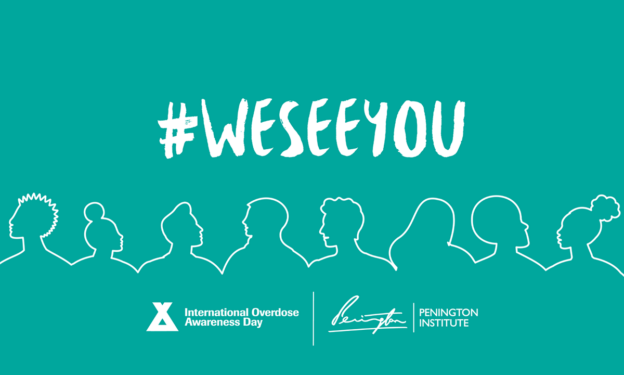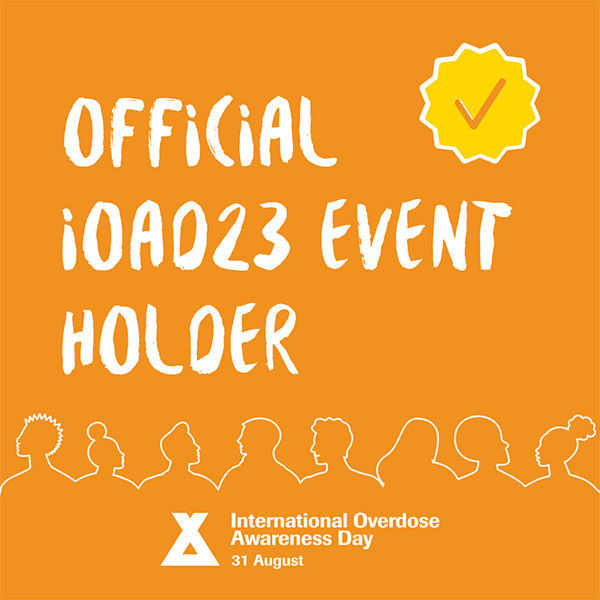As the shadows of the opioid epidemic lengthen across continents and communities, the significance of International Overdose Awareness Day (IOAD) on August 31st deepens with every passing year. It’s a poignant moment of collective remembrance, and equally, an urgent call for transformative change and compassionate action.
The Heart of International Overdose Day
Marked globally, International Overdose Day aims to:
- Raise awareness about overdose and reduce the stigma associated with drug-related deaths.
- Pay tribute to those who’ve lost their lives to overdose, and extend support to their loved ones.
- Advocate for evidence-based interventions to prevent and treat substance use disorders.
The Fentanyl Crisis: A New Chapter in Overdose Epidemic
The opioid crisis continues to evolve. Enter fentanyl, a potent synthetic opioid that’s up to 100 times more powerful than morphine. A mere grain-sized amount can prove fatal. This isn’t just an overdose; it’s poisoning.
But, what’s the difference? An overdose suggests an intentional consumption of an excessive amount. In the fentanyl crisis, many victims consume the drug unknowingly, often mixed with other substances. The term ‘poisoning’ captures the unsuspecting and unintentional nature of this tragedy, driving home the urgency to address drug contamination and improve drug safety.
For over 25 years, people from all over the world have chosen Waismann Method as their opioid detox provider.
We know the challenges you face and the importance of creating a unique and personal experience for you right from the start.Call for Detox Options 1-800-423-2482
A Snapshot: The Current Overdose Landscape
- The U.S. Overdose Epidemic: The U.S. continues to witness a devastating rise in overdose In recent years, over 93,000 people died from drug overdoses, marking a significant increase from previous years. Synthetic opioids, particularly fentanyl, are driving this alarming increase.
- The Global Perspective: While North America remains a primary concern in terms of drug-related mortalities, the situation is a global challenge. North America accounts for a large portion of global drug-related deaths, but other regions are also showing disturbing trends.
- The Fentanyl Factor:
-
- Potency: Fentanyl is estimated to be 50 to 100 times more potent than morphine and about 50 times more potent than heroin. A dose as small as 2 milligrams can be lethal.
- Distribution: Illicitly manufactured fentanyl has been found in all 50 states in the U.S. It’s often disguised as other drugs, leading users to consume it unknowingly. This makes it even more dangerous since many aren’t aware they’re ingesting such a potent substance.
- Death Toll: According to data from Song for Charlie, fentanyl is now involved in over half of all drug overdose deaths. The rise of fentanyl in the drug market has dramatically changed the face of the U.S. opioid crisis.
- Contamination: One of the major risks of fentanyl is its introduction into other drugs. Dealers have been found to lace various drugs, including cocaine, methamphetamine, and MDMA, with fentanyl. This significantly raises the risk of overdose for those who may be entirely unaware they’re consuming fentanyl.
- Public Health Alert: Due to the surge in fentanyl overdoses, the Drug Enforcement Administration (DEA) issued a public health alert, the first of its kind in six years, warning of the dangers of fentanyl and its role in the increasing number of overdose deaths.
Beyond Criminalization: A Need for a Paradigm Shift
The dominant approach to tackling the opioid crisis has often been punitive. Incarceration, stigmatizing labels, and long-term replacement therapies have been the conventional methods. But there’s growing recognition that these strategies might be perpetuating the problem.
A shift towards a supportive and rehabilitative approach is the need of the hour. Compassion, understanding, and evidence-based treatment must replace criminalization.
Your Role This International Overdose Day
Every individual can make a difference. Here’s how:
- Educate Yourself: Dive deep into the latest research, statistics, and tools to combat the overdose epidemic. Websites such as the American Society of Addiction Medicine and the Substance Abuse and Mental Health Services Administration offer valuable resources.
- Memorialize the Lost: From candle vigils to memorial services, find a way to remember those who’ve been lost to this crisis.
- Spread the Word: Engage community leaders, professionals, and local organizations. Share stories, statistics, and resources.
- Push for Policy Changes: Advocate for better drug policies that focus on rehabilitation rather than punishment.
- Connect with Treatment Centers: Research and refer to places like the Waismann Method® treatment center or Domus Retreat that prioritize patient-centered care.
The Future of International Overdose Day
While the numbers remain daunting, there’s room for optimism. More organizations and individuals are rallying behind the cause. Treatment methodologies are evolving, and there’s increasing advocacy for more comprehensive and humane drug policies.
As we mark International Overdose Day, we’re reminded of the battles lost. But we’re also inspired by the stories of recovery, the advances in research, and the growing global community dedicated to ending this crisis.
To truly honor International Overdose Day, we must carry its message forward – advocating for understanding, compassion, and evidence-based solutions in the face of the overdose epidemic.
Together for Change: International Overdose Awareness Day with WAISMANN METHOD®
In a heartfelt tribute to those unseen, Clare Waismann, M-RAS/ SUDCC ll, founder of Waismann Method® and Domus Retreat® along with her co-hosts, David Livingston LMFT, and Dwight Hurst, LPC, will illuminate the nuances of the overdose crisis. Reflecting the core message of IOAD 2023, our live event will resonate with the voices of those often overlooked, fostering empathy and urging collective action. Become part of the global initiative to dispel myths and embrace humanity.
Conclusion
International Overdose Day isn’t just a date on the calendar. It’s a commitment to a future where every individual impacted by the overdose epidemic feels seen, heard, and supported. By understanding the nuances, like the difference between overdose and poisoning in the fentanyl crisis, and by continuously updating our approaches based on evidence, we can ensure that this day translates into meaningful action year-round.







